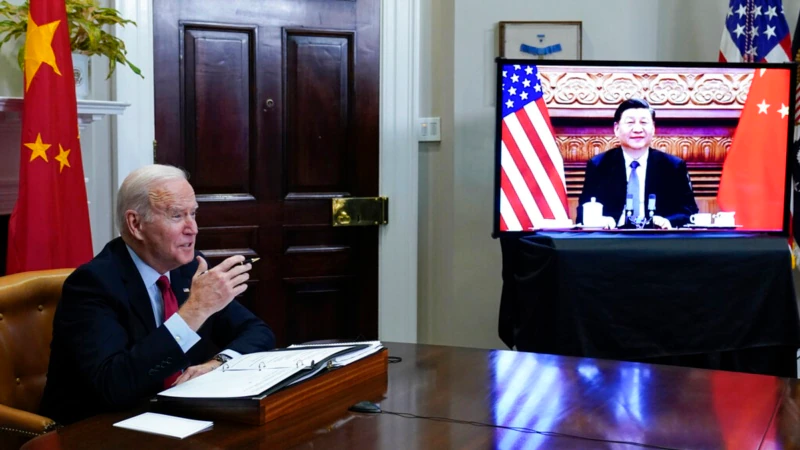U.S. President Joe Biden and Chinese President Xi Jinping will “engage over the course of the next few weeks” but not immediately after the G-7 summit, White House national security adviser Jake Sullivan said Monday.
Meanwhile, chief diplomats from the United States and China are planning meetings on the sidelines of next month’s G-20 ministerial in Bali, Indonesia, according to diplomatic sources.
Sullivan told reporters that there is an “urgent need” for consultation among G-7 and NATO members to address challenges that China poses, while seeking “alignment among the world’s leading market democracies to deal with some of those challenges. In particular, China’s nonmarket economic practices, its approach to debt and its approach to human rights.”
Leaders from NATO countries will meet in Madrid later this week. U.S. officials and analysts say discussing approaches to the People’s Republic of China (PRC) is high on the agenda, as NATO is expected this year to certify its new Strategic Concept, the organization’s most important working document after the North Atlantic Treaty of 1949. The last Strategic Concept was agreed to in 2010.
The NATO Strategic Concept “will speak in ways that are unprecedented about the challenge that China poses,” Sullivan said Monday, adding that the competition between the U.S. and China “does not mean confrontation or conflict,” a notion that China has rejected.
“China firmly opposes the definition of China-U.S. relations by competition,” top Chinese diplomat Yang Jiechi said during his latest meeting with Sullivan in Luxembourg June 13. Yang reiterated that China has been seeking a bilateral relationship with the U.S. based on “mutual respect, peaceful coexistence and win-win cooperation.”
The planned in-person meeting between U.S. Secretary of State Antony Blinken and Chinese Foreign Minister Wang Yi next month during the G-20 ministerial would come as Russia ramps up its offensive in Ukraine.
Senior U.S. officials have questioned China’s alleged “neutrality” after Russia invaded Ukraine.
In May, China imported about 8.42 million tons of crude oil from Russia, according to Chinese customs data — a 55% increase from a year ago. Russia has overtaken Saudi Arabia to become China’s top oil provider, as the U.S. and other western countries continue to sanction Moscow’s energy exports.
“There’s disappointment that the rhetoric from Beijing hasn’t been what one would have hoped. But I also don’t know that we’ve seen the type of material support that would actually bolster the physical effort by the Russian government to crush Ukraine,” U.S. Ambassador to Russia John Sullivan told VOA last week.

